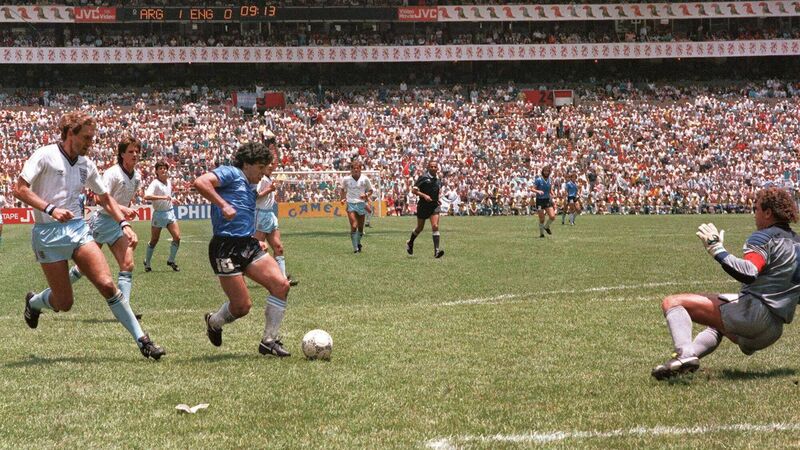Larry Ryan: Tears for Tipperary, Diego Maradona, and touching the sky

DIFFERENT CLASS: Diego Maradona about to round England goalkeeper Peter Shilton during the World Cup quarter-final in Mexico City on June 22, 1986.
A few things have happened since, but we shouldn’t forget this was the week Nicky English cried.
At the end of Nicky’s customary considered analysis of the All-Ireland hurling quarter-finals in The last Monday, there was a brief declaration of personal investment.









